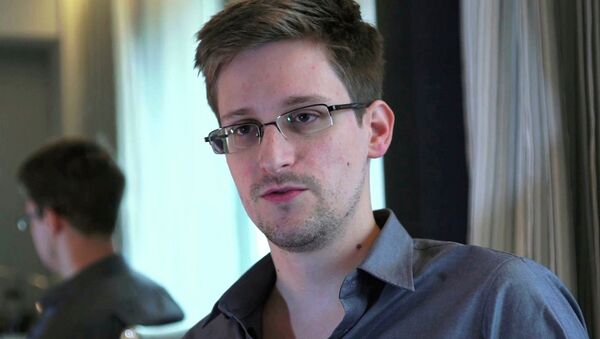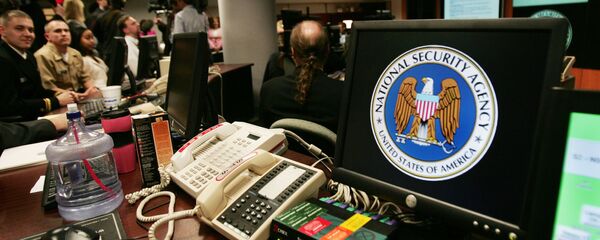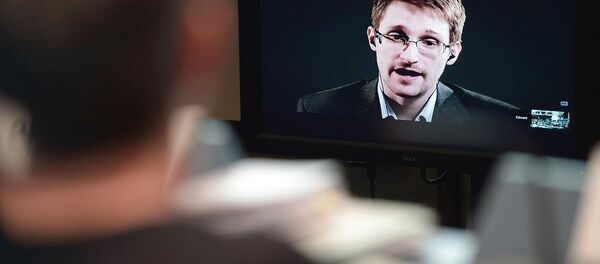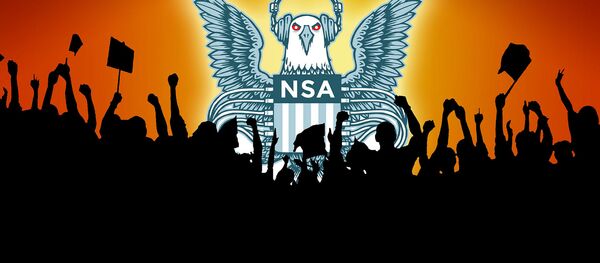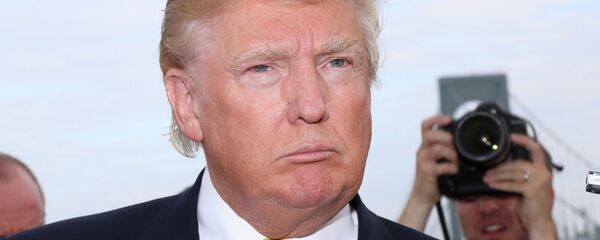In early June 2013, Snowden leaked online classified information revealing global surveillance programs run by US intelligence services.
Snowden's revelations could cost him as much as 30 years in prison in the United States, where he is wanted on charges of espionage and theft of government property.
At the time of the document release, Snowden fled to Hong Kong, and on June 23, 2013, arrived from Hong Kong to Moscow. He remained in the transit zone of Sheremetyevo Airport, which he was unable to leave, as his US passport had been revoked.
On June 30, 2013, WikiLeaks editor Sarah Harrison, presented to the consular department at Moscow’s Sheremetyevo Airport requests for political asylum addressed to 21 countries, including Austria, Bolivia, Brazil, China, Cuba, Finland, Germany, India, Ireland, Italy, the Netherlands, Nicaragua, Norway, Poland, Russia, Spain, Switzerland and Venezuela.
On July 1, Russian President Vladimir Putin said that if Snowden wanted to be granted asylum in Russia, he would be required to stop his work aimed at “harming our US partners.”
On July 5, it was reported that Snowden had requested asylum in another six countries.
On July 7, Venezuelan Foreign Minister Elias Jaua said Venezuelan authorities, who had offered the former US defense contractor guarantees of asylum, were waiting for a response to their offer. Bolivian President Evo Morales also expressed his readiness to grant Snowden asylum if he officially requested it. Nicaragua also offered their assistance for asylum.
On July 11, Snowden emailed a letter to foreign human rights organizations working in Russia, the UN mission in Moscow, and several Russian lawyers, inviting them to meet him on July 12 in the transit zone of Sheremetyevo Airport. After the meeting, it became known that Snowden would request temporary asylum in Russia.
On July 16, Snowden's new Russian lawyer Anatoly Kucherena filed an official request for temporary asylum in Russia to a representative of the Federal Migration Service. As part of the explanation for requesting asylum during the paperwork filing, Snowden explained that he feared for his life.
On July 31, Snowden was granted a one-year temporary asylum in Russia.
On August 1, Snowden left the airport in a taxi, alone.
On August 6, Snowden was registered with the migration service. The decision to grant Snowden temporary asylum in Russia was made by a territorial section in the Federal Migration Service (FMS).
In late August, FMS Moscow Directorate head Olga Kirillova claimed Snowden was not living in Moscow.
By October 15, Snowden had met with his father in Moscow but no details were provided.
On October 16, it was learned that Snowden’s father would return to the United States, planning to visit Russia again.
On October 17, The New York Times reported that Snowden had granted an interview to the paper, adding that he had arrived in Russia without classified materials. According to Snowden, all classified documents were transferred to reporters he had met in Hong Kong before flying to Moscow, and he had made no copies.
On October 31, it was reported that on November 1 Snowden would start working for a major Russian website.
On October 31, Snowden met with Bundestag member Hans-Christian Stroebele in Moscow and handed him a letter addressed to the German government, parliament and the Prosecutor General’s Office. Stroebele, a member of the parliamentary committee that oversees German intelligence, and Snowden discussed the terms on which Snowden could testify as part of an investigation into US intelligence operations in Germany, including the monitoring of Chancellor Angela Merkel’s cell phone calls.
On December 16, it was reported that Snowden was voted Euronews Person of the Year 2013, with 47 percent of viewers voting for him. Earlier, The Guardian, which was the first to publish Snowden’s controversial materials, and also voted Snowden Person of the Year 2013.
On December 24, in an interview with The Washington Post, Snowden said his mission had been accomplished.
On December 25, Snowden wished the British a merry Christmas and urged them to consider the dangers of mass surveillance currently propagated by many governments and other organizations. The message, recorded in Russia, was Snowden’s first TV appearance since receiving asylum in Russia in August 2013. Snowden sent his Christmas Message to the British an hour after the queen’s Royal Christmas Message. His message was broadcast by Channel 4.
On January 26, Snowden gave his first TV interview during his stay in Russia. He met with journalist Hubert Seipel on conditions of deep secrecy. During the interview, Snowden said he chose to reveal the scale of Western intelligence surveillance after watching a statement by Director of US National Intelligence James Clapper, who, he asserted, was lying under oath to Congress.
On February 18, it was reported that Glasgow University students had elected Snowden an honorary rector.
On March 10, Snowden addressed attendees of the South by Southwest (SXSW) Interactive Technology Conference in Austin, Texas, by teleconference. Snowden said that he had leaked top-secret information about illegal US intelligence programs in order to uphold the law.
On April 7, The New York Times said Snowden had been awarded the Ridenhour Truth-Telling Prize.
On April 8, Snowden addressed a meeting of the PACE legal affairs committee by teleconference, saying in part that the international community must develop new standards of conduct to prevent mass surveillance programs.
Snowden also spoke about a US intelligence program called Fingerprints, which enabled analysts not only to trace individuals but also analyze their actions on the Internet.
On May 21, Snowden gave his first interview to US television from a Moscow hotel. The interview lasted about four hours.
On May 29, Snowden was reported to be planning to ask Russian authorities to extend his asylum in Russia.
On August 1, 2014, after a year in Russia, Snowden received a three-year residency permit.
On September 24, Snowden was awarded Sweden's Right Livelihood Honorary Award, also known as the Alternative Nobel Prize.
On October 24, Snowden participated in the Freedom Festival 2014 in Brussels by teleconference. He said he would like to return to his home country and continue working there.
On October 27, Snowden was awarded a commemorative medal “90th birth anniversary of Alexander Zinoviev”.
On November 23, Snowden was awarded the Stuttgart Peace Prize.
On December 1, Snowden was awarded the Right Livelihood Award 2014.
On December 10, Snowden participated in a video conference between Moscow and Paris organized by Amnesty International. He confirmed he had destroyed all the classified materials in his possession.
On December 14, the International League for Human Rights awarded Snowden the Carl von Ossietzky Medal for his unique revelations of human rights violations.
On February 13, 2015, Snowden spoke with Laura Poitras, the director of a film about him, and journalist Glenn Greenwald by teleconference.
On February 23, Snowden congratulated Poitras, whose film, Citizenfour, an inside look at his life, won an Academy Award for best documentary.
On March 27, Snowden met with representatives of the Swedish parliament. to receive, for the first time, a parliamentary delegation.
On June 2, Snowden participated in a video conference organized by Amnesty International in London, saying he had sent asylum requests to 21 countries and was still awaiting a response.
On June 5, Snowden met with President of Argentina Cristina Fernandez de Kirchner in Moscow.
On June 23, the Kazakhstan Journalists’ Union awarded Snowden a Union Prize in the “investigative journalism” category.
Snowden is said by his Russian lawyer to be under constant surveillance, moving around the city under the protection of a private bodyguard. Snowden's girlfriend periodically stays with him in Moscow.
Snowden does not use an iPhone for security considerations, as this phone has programs that can be activated without owner knowledge and can pass on information about the user.
Edward Snowden is known to speak a little Russian.

